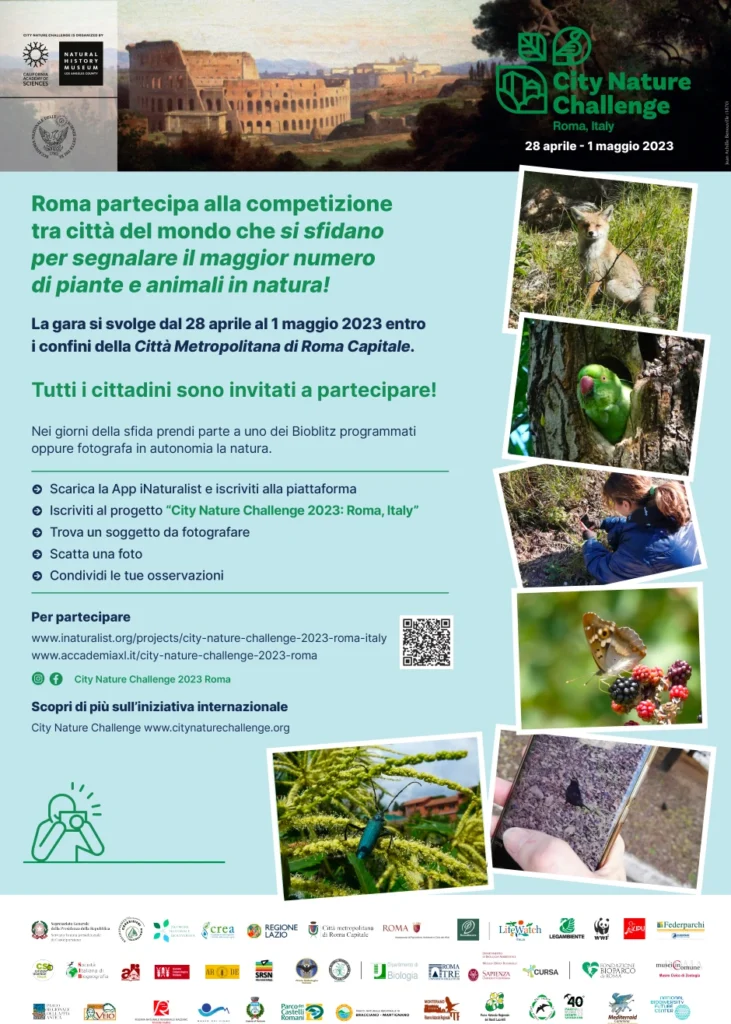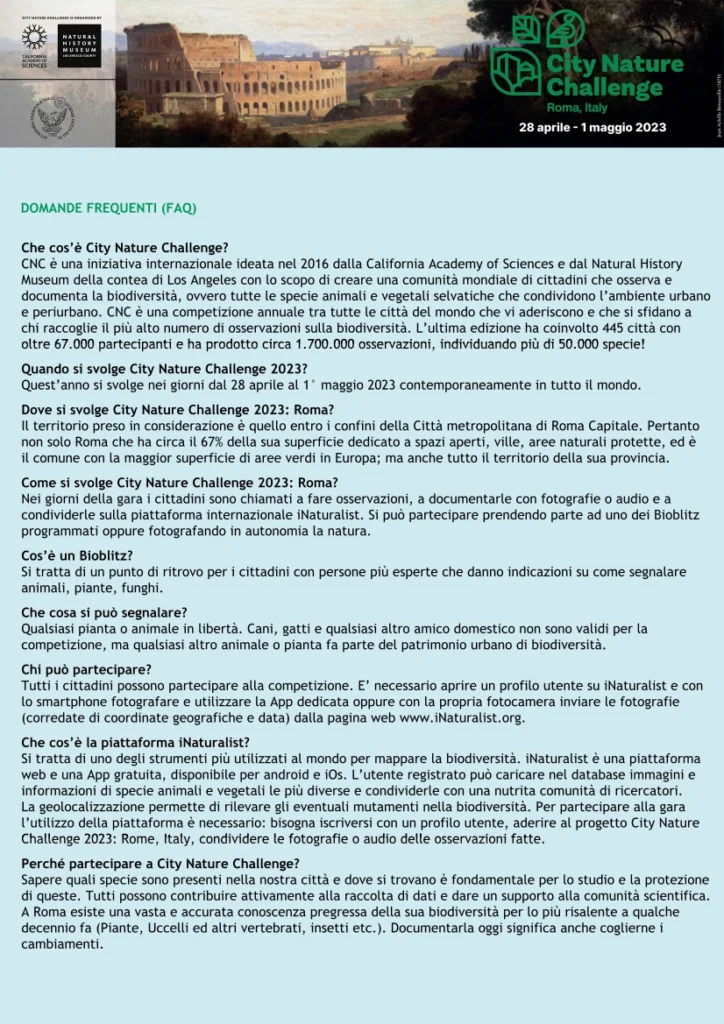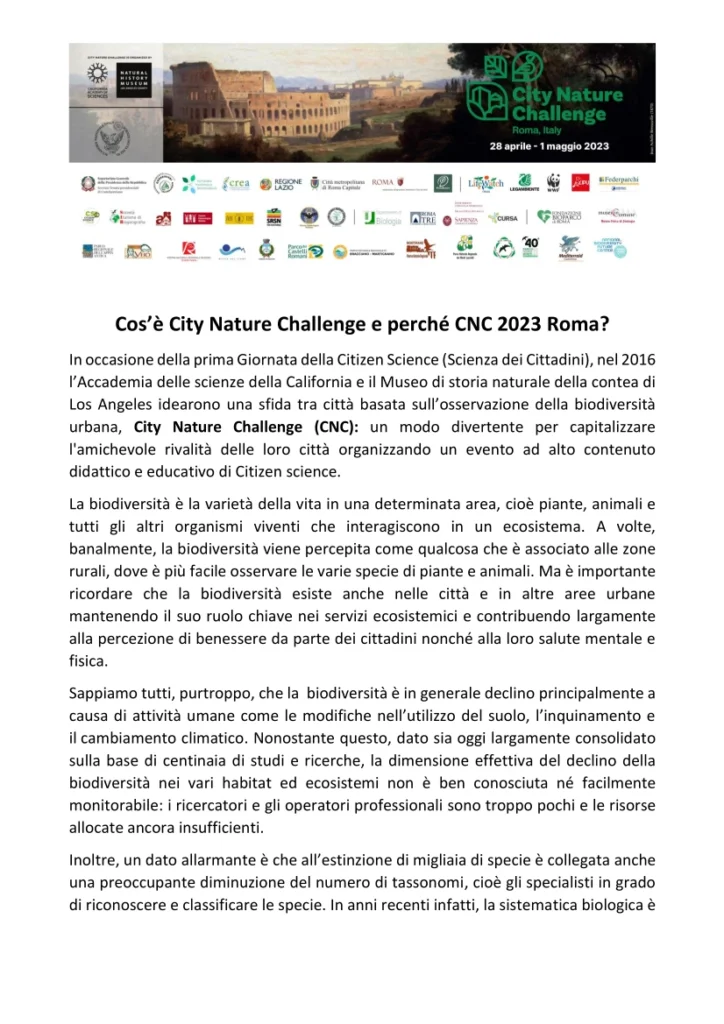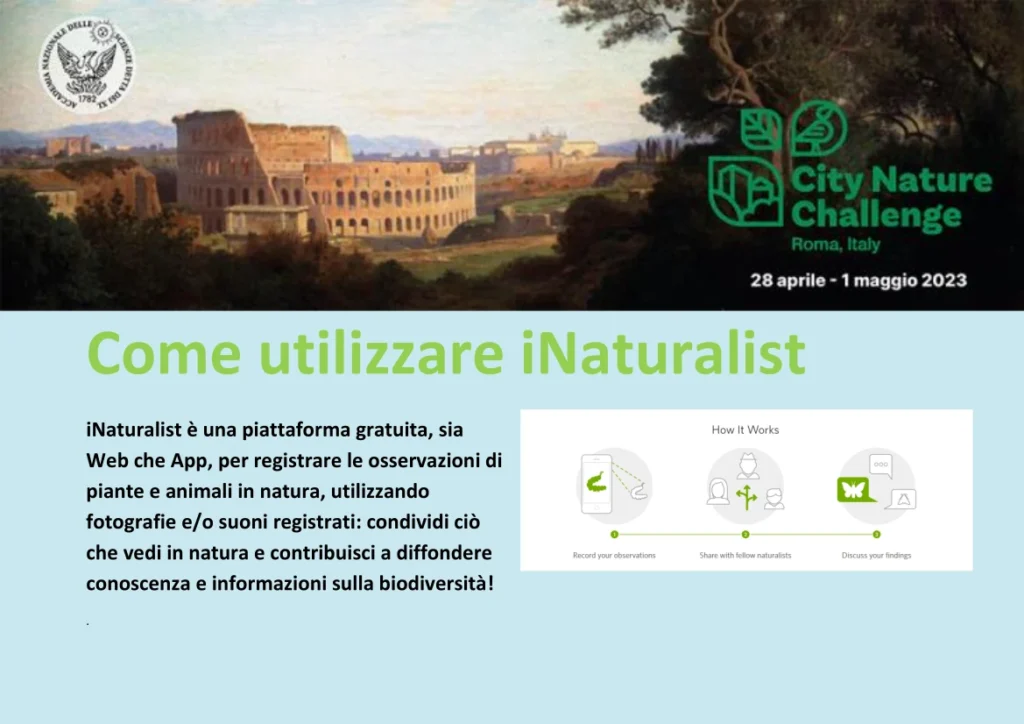Citizen Science
Citizen science is a mode of research that involves people who are not trained in science but who nonetheless can make relevant contributions to the work of professional researchers. It is also called collaborative science.
It is an approach that is reshaping the relationship between Science and Society and has applications in a variety of fields: from studying the climate crisis to environmental monitoring, but also in medicine, genetics, physics, astronomy, geology, sociology, and engineering.
Citizen Science initiatives are important both because of the contribution they can give to the advancement of scientific knowledge through the collection, analysis, and interpretation of data in a shared way; and because they propose the involvement of citizens, families, and young people with relevant spin-offs in terms of the dissemination of scientific content and new approaches to science.
The Academy, through the initiative of then-president Emilia Chiancone, has been supporting the development of Citizen Science in Italy for several years,. In 2017, it organized the first national Citizen Science conference at the National Research Council in Rome and made its contribution to the development of a national strategy by hosting the very first meetings in 2018 and 2019.
The Italian Citizen Science Association was established on February 2023, with headquarters in Grosseto at the Natural History Museum of Maremma.
City Nature Challenge
On the topic of biodiversity, citizen science is already particularly active, producing useful results in hundreds of completed or ongoing projects, and among these initiatives is the international event City Nature Challenge.
CNC is a friendly competition held annually over 3-4 days among more than 450 cities around the world that compete with each other through the participation of scientists and volunteers, who on competition days, are asked to collect and report the most data on urban and peri-urban biodiversity through the iNaturalist platform. CNC is one of the world’s largest Citizen Science events conceived in 2016 by the California Academy of Sciences and the Los Angeles Museum of Natural History.
City Nature Challenge Rome 2024
Like last year, the National Academy of Sciences is promoting and holding the City Nature Challenge 2024: Rome, which will take place over four days from April 26 to 29. More information here.
City Nature Challenge Rome 2023
The National Academy of Sciences promoted the participation of the Metropolitan City of Rome in the 2023 edition of City Nature Challenge. With as many as 482 cities from 46 countries around the world, the 2023 edition of City Nature Challenge was the most attended ever. During April 28-May 1, 2023, City Nature Challenge produced a total of 1,870,763 observations made by 66,394 citizens. The observations covered 57,227 species of animal plants and fungi recognized with the help of 15,308 identifiers. More than 40 events were organized in Rome metropolitan area, observation campaigns open to the public, or reserved for schools and specific groups (such as the divers of the Secche di Tor Paterno). By total number of observations Rome was fourth in Europe and 26th in the world, with 15,318 observations, of which 14,316 were verifiable and 4,275 already validated at the research level. Rome was surpassed by two Austrian cities Graz and Salzburg and, in Italy, only by Milazzo, which had already achieved world-class positions in the previous two editions. A total of 2089 largely verifiable (i.e., accompanied by photographs or audio) ‘species’ were observed in Rome, of which as many as 944 were already usable for research purposes. Rome ranked 27th in the world and 5th in Europe for the number of species identified.
By number of participants, Rome ranked 20th in the world and first in Europe, with 657 citizens making and sharing observations during the four-day competition. A nod to the ‘quality’ of participation: at least 100 citizens made 30 observations with 15 different species. This is a very significant figure as it testifies to the efforts made to involve citizens, with a view to scientific outreach and environmental awareness.
The participation of the Metropolitan City of Rome in the international competition was promoted by the National Academy of Sciences and supported by the Castelporziano Presidential Estate Service, Carabinieri Biodiversity Regiment, National Biodiversity Network, CREA, Lazio Region, Metropolitan City of Rome, Roma Capitale – Department of Agriculture, Environment and Waste Cycle, Roma Natura, LifeWatch Italia, Legambiente, WWF, Federparchi, Lipu, CURSA, Sapienza University of Rome, Botanical Garden, Department of Biology of Tor Vergata University, University of Roma Tre, Citizen Science Association Italy, Italian Society of Biogeography, Italian Lepidopterological Association, Italian Entomological Society, Roman Association of Entomology, Roman Natural Science Society, Circolo Speleologico Romano, National Association of Natural Science Teachers (ANISN), Bioparco Foundation of Rome, Museo Civico di Zoologia, Parco dell’Appia Antica, Parco di Veio, Riserva Naturale Tevere Farfa, Museo del Fiume di Nazzano, Parco dei Castelli Romani, Parco naturale regionale Bracciano Martignano, Riserva Naturale Regionale di Monterano, Parco dei Monti Simbruini, Riserva Naturale Regionale Monti Lucretili, Mediterraid Cammina.
Intervista Radio 1 Rai prof. Valerio Sbordoni (min. 13.30)
Intervista Radio 1 Rai dott.ssa Giulia Bonella,
direttore del Servizio Tenuta Presidenziale di Castelporziano (min. 5.15)
Rassegna stampa CNC Roma 2023
I Bioblitz organizzati dai partners CNC Roma 2023






